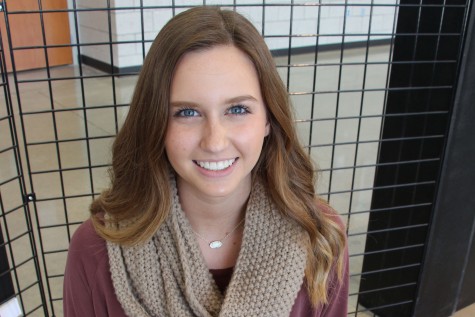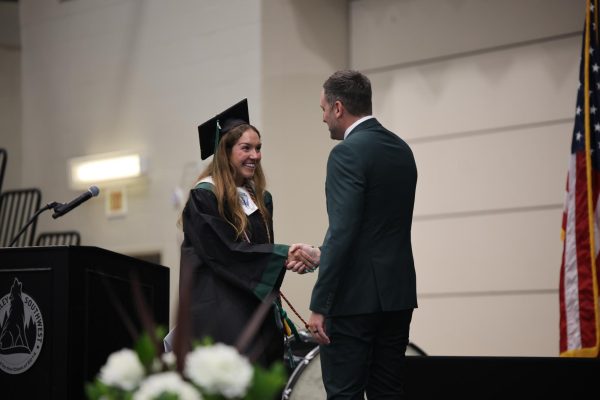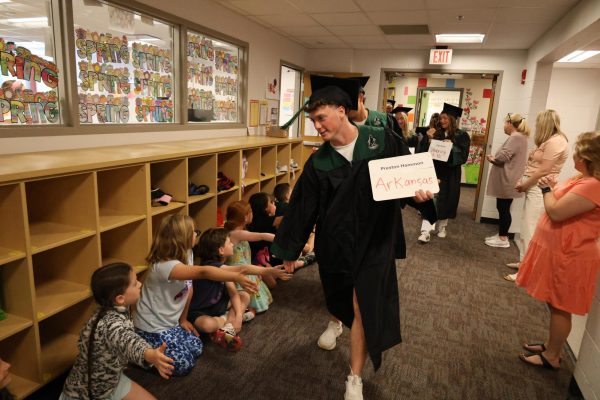Kansas Board of Education lifts requirements on teacher certification
On July 14, a 64 vote by the Kansas Board of Education (KSBE) permitted the Coalition of Innovative School Districts (CISD) to hire teachers who lack teaching credentials.
The schools districts included in the CISD are McPherson, Concordia, Hugoton, Marysville, Blue Valley and Kansas City, Kansas.
The motion mandates that new teachers are required to have a college or equivalent degree, the waivers for potential teachers must go through the state board for approval and there has to be a limited number of applicants for the waivers.
The six members of the CISD are to return to the state board for a review at the end of the year. According to John Richard Schrock, an Emporia State University professor, Kansas is the first state to implement this policy.
Teachers who voiced opposition to this referred to the measure as “deprofessionalization” at state board hearings.
The state board supported this change for multiple reasons including teacher shortage in Kansas. More than 3,700 teachers have retired, left the state or taken jobs outside of education in the past year. As several State Board members noted, teacher shortage is going to get worse before it gets better. There is now concern that if the window is open, the teacher shortage will allow a flood of unqualified “teachers” into school systems.
Teacher shortage impacts different districts in different ways. In the past, the Blue Valley school district has had little difficulty recruiting and keeping qualified teachers. When referring to KSDE online license lookup, every teacher at Southwest as well as CAPS teachers were certified in their field of teaching as of 2014.
Blue Valley has unique programs such as innovation spaces and digital learning centers used in CAPS programs which provide students with realworld experiences in various career fields; the greatest need for noncertified teachers would lie in these special learning environments.
This is in opposition to rural districts, such as Hugoton District which is located six hours from Blue Valley, which is asking for teacher licensure freedom. Hugoton bases its request to hireatwill on past problems recruiting teachers in rural Kansas. Its statement reads, “We want complete and total freedom from the overbearing KSDE licensure requirement.”
Both Blue Valley’s innovation spaces as well rural districts not being able to recruit teachers comes down to asking the state board to trust its judgment of having acceptable people in the classrooms — licensed or not.
“We haven’t been put in a position where we’ve had to use this change, and that’s mostly because we have a pretty deep application pool with quality and talented people who are interested in working at Blue Valley, so we are very fortunate to have that,” Blue Valley Director of Certified Staff, Bob Kreifels said. “There are other school districts that may not have the depth of the applicant pool that we do, and so I think that type of avenue for them to obtain a license will help to make sure that they have professionals in the classroom that are able to help the student population. I really think for Blue Valley this is a very minor piece, and I don’t anticipate that we will have the need to put it into place unless it’s a very rare case.”
At Southwest, principal Scott Roberts assures that if given an option, he’s going to maintain having a staff of all certified teachers with little exception.
“If there’s ever an option, I’m going to go for the licensed teacher,” Roberts said. “I want to go for a person who has been through a teacher education program. I know what great programs look like and we have a dozen — several state programs are the best in the country. So that’s who we have coming to us and that’s our preference. As you look at it from a district point of view, CAPS is the place where we would implement this. But, even still, if there’s a license out there for it, we’re going to want to go for that licensed teacher. If there’s not, that gives us some flexibility.”
Teacher education programs are designed to screen out those who don’t have proper qualifications, as well as produce teachers who are professionals. Student teaching requires interaction with students and detects attitudes and behaviors that would not show up on a background check.
People entering without the background of student teaching would be missing a large piece of teaching. According to Schrock, for those who don’t experience teacher education programs, about onethird succeed. Another third hold the job but wish they had chosen different professions. And, about onethird quit sometimes quitting during their first weeks in the classroom. Teacher licensure provides the opportunity to eliminate out the twothirds that are likely to quit. According to Roberts, the learning that occurs during teacher education is an important piece to producing well qualified teachers.
“You might work in the business world, but you might have no idea about pedagogy,” Roberts said. “A lot of people think they know how to teach because they went to school. I would challenge anyone to come teach for 10 minutes and see how easy it is — it won’t be as easy as you think. At the building level I don’t hire anyone, I just recommend to our HR department. I may say ‘this person would be a really good candidate but they don’t have a license and technically we could do it, so what do you think?’ And we may go through a process to see if they’re a right match. 9.9/10 times I’m going to want someone who has a license. They’ve learned the things that make them the most successful.”
At the end of the process, every teacher in Blue Valley is expected to have some type of license — whether that be a teaching license, equivalent degree or experience. The main difference would lie in the level of experience the teacher would possess before entering the classroom.
“Even if we hire a noncertified teacher, they would have to receive a license in order to be able to teach,” Kreifels said. “I think the difference comes in between if they have completed a teacher education program that is recognized by the state of Kansas, and that’s probably the technical difference. If the CISD applied for a license, the local and state boards approve it and a license is issued to that person. So the difference really is, ‘Did you meet the criteria of the teacher education programs under the standards of Kansas State Board of Education, or are you requesting an exception because of different experience in education?’ They would follow under the same evaluation process as people who have gone through teacher education process who had gotten a license through KSBE in, what we would say, the typical way.”
Blue Valley’s Strategic Initiative adopted by the Board of Education in 2013 states: “Blue Valley will create and implement a system of selection, retention, and professional development that will ensure every Blue Valley student has an exemplary teacher in the classroom.” If Blue Valley decides to use this policy, the question of whether or not the district is living up to its mission statement could arise.
Math department chair Holly McCarty raises this concern as she is a mom of three in the Blue Valley district.
“Education is extremely important to me,” McCarty said. “I don’t think most people realize the amount of work that goes into teaching just one lesson. Not only do you need to know the content you must know how to get it across to students. Teachers must be knowledgeable in all learning styles and special needs of all students. Being a teacher [as well as a mom], I feel it is very important for a teacher to be certified. There is a lot more than simply knowing content to actually teach all students. [If Blue Valley chose to implement this policy], it could hurt the quality of teachers we get in the district.”
When this motion was passed, the press attacked. There are many pieces that went into the decision that KSBE made, and hiring noncertified teachers was a very small piece of that. However, the teachers’ concerns regarding the potential of hiring pseudoteachers began to build due to the coverage by the press. District officials want to reassure people that this piece of the decision hardly has any relevance in the district compared to other districts. For Roberts, he can understand both sides of the issue.
“I think it would affect teacher morale because you’re basically saying to a teacher, ‘Your professional preparation isn’t that important,’ and I understand that perspective,” Roberts said. “I was a teacher — I get it. The concern that teachers raise, I would raise the same concern. But, I also understand those districts where it is difficult to find licensed teachers; this is an option for them to help out those kids as well as their school district.”
Kreifels said the district will focus on the other pieces and push this one aside for the time being. The district’s plan is to stay true to its “standard of excellence.”
“I certainly can see how deprofessionalizing could be a concern, but I want to emphasize that Blue Valley highly values the teacher education programs and the qualified teachers we have in our classrooms,” Kreifels said. “If we were ever to seek a candidate for such a license it would only be that we were unable to find somebody that was qualified and licensed through the state of Kansas first. We have no intention of changing our practice in terms of hiring licensed teachers.”











